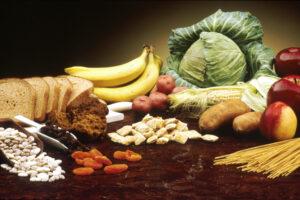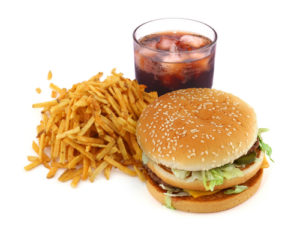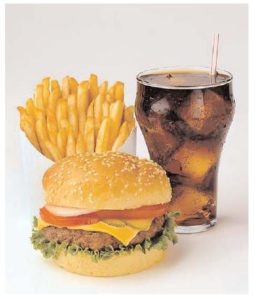 Eating plant-based foods has health benefits. But only if it's from real foods, and not ultra-processed. A recent study found that the more not ultra-processed plant-based foods a person ate (and the less ultra-processed plant-based foods), the lower their risk of cardiovascular disease and early death.
Eating plant-based foods has health benefits. But only if it's from real foods, and not ultra-processed. A recent study found that the more not ultra-processed plant-based foods a person ate (and the less ultra-processed plant-based foods), the lower their risk of cardiovascular disease and early death.
The results show that eating minimally processed food is heart protective. And the reverse is also true: higher consumption of plant-based ultra-processed foods was associated with a greater risk of heart disease (including heart attacks and strokes) and early death from heart disease.
Read the ingredient lists! When there are ingredients that are not normally found in your kitchen (e.g., carrageenan, artificial or natural flavors, titanium dioxide, soy lecithin, high-fructose corn syrup, cellulose) - then they are ultra-processed foods. Ultra-processing strips away a food's nutrients, as well as fiber.
Yes, trying to lower consumption meat consumption and eating more plant-based foods is a good goal. But...Many meat-free foods (e.g., boxed macaroni and cheese), dairy substitutes, and plant-based "meats" are not healthy. Lots of chemicals were added to make it more meat-like or a dairy substitute - thus they are ultra-processed foods.
Packaged breads, buns, cakes, cookies and soda are meat free and plant-based foods, but they generally are ultra-processed.
Bottom line: Try to eat more fresh, frozen, or minimally plant-based foods. This is a diet rich in whole grains, fruits, vegetables, legumes (beans), seeds, nuts. A good example is a Mediterranean-style diet, which has been shown to have many health benefits.
From Washington Post: When plant foods are ultra-processed, the health benefits disappear
Eating a plant-based diet is good for your health, but not if those plant foods are ultra-processed, a new study has found.
The findings show that all plant-based diets aren’t the same, and that plant foods can have very different effects on your health depending on what manufacturers do to them before they reach your plate. ...continue reading "Eating Ultra-Processed Plant-Based Foods Is Not Healthy"

 The studies finding health harms from ultra-processed foods keep coming. Ultra-processed foods are food products manufactured with all sorts of ingredients (additives) not normally found in our kitchens.
The studies finding health harms from ultra-processed foods keep coming. Ultra-processed foods are food products manufactured with all sorts of ingredients (additives) not normally found in our kitchens.  Most Americans eat highly processed or ultra-processed foods every single day, with most of their daily calories from them! There are all sorts of health risks from these foods, with a recent study finding an overall increased risk of cancer, as well as prostate and breast cancer.
Most Americans eat highly processed or ultra-processed foods every single day, with most of their daily calories from them! There are all sorts of health risks from these foods, with a recent study finding an overall increased risk of cancer, as well as prostate and breast cancer. Chemicals known as "forever chemicals" or PFAS have been in the news a lot recently. This is because PFAS (per- and polyfluoroalkyl substances) are in so many products that we all use, yet research is showing more and more health harms from them. Including to pregnant women and developing babies.
Chemicals known as "forever chemicals" or PFAS have been in the news a lot recently. This is because PFAS (per- and polyfluoroalkyl substances) are in so many products that we all use, yet research is showing more and more health harms from them. Including to pregnant women and developing babies. Unfortunately, unprocessed and minimally processed foods are more expensive than ultra-processed foods. So it wasn't surprising that socioeconomic levels (including income levels) made a difference - the lower the household income, the greater the average ultra-processed food intake.
Unfortunately, unprocessed and minimally processed foods are more expensive than ultra-processed foods. So it wasn't surprising that socioeconomic levels (including income levels) made a difference - the lower the household income, the greater the average ultra-processed food intake.
 Bottom line: try to increase your intake of real whole foods, and decrease your intake of ultra-processed foods. This
Bottom line: try to increase your intake of real whole foods, and decrease your intake of ultra-processed foods. This  The last post dealt with the link between
The last post dealt with the link between